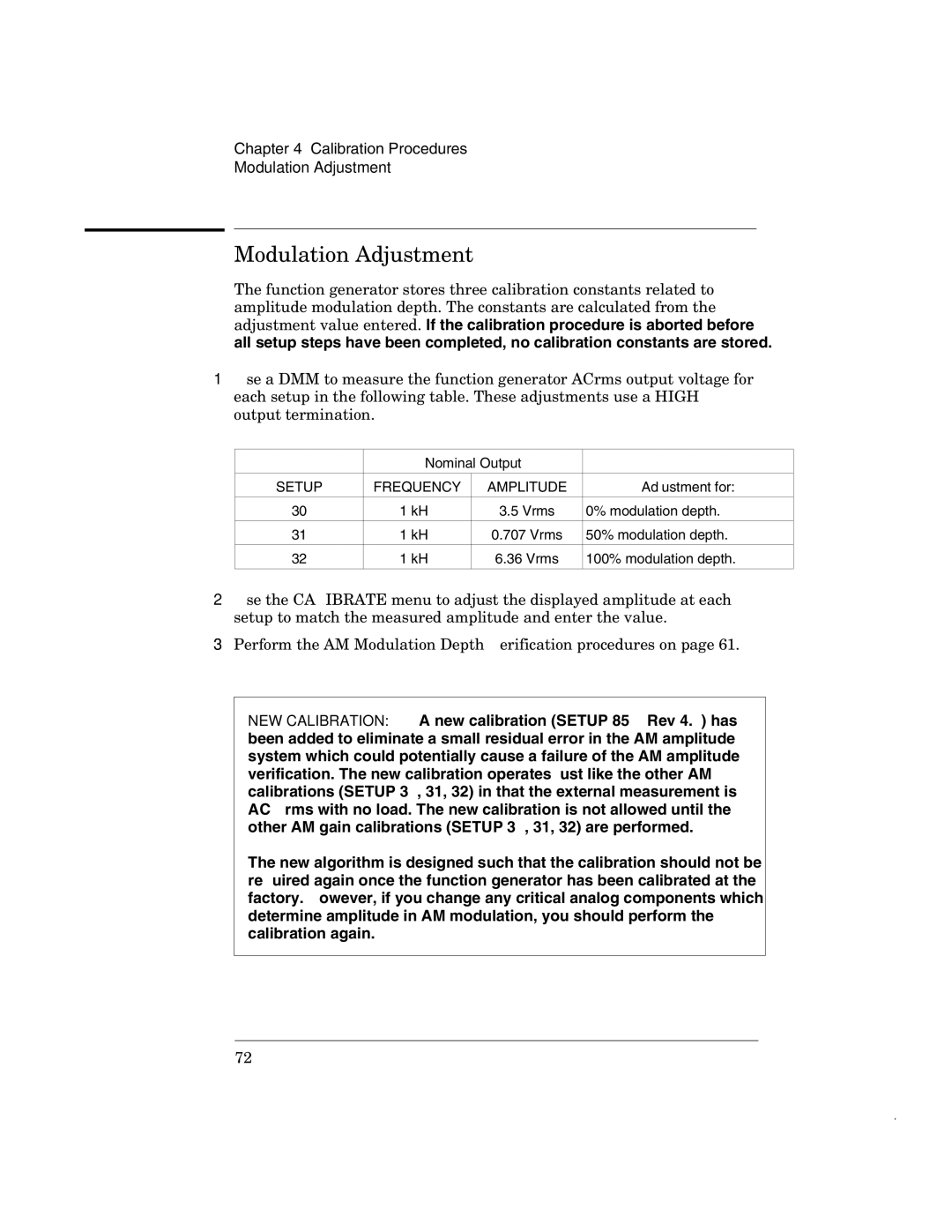
Chapter 4 Calibration Procedures
Modulation Adjustment
Modulation Adjustment
The function generator stores three calibration constants related to amplitude modulation depth. The constants are calculated from the adjustment value entered. If the calibration procedure is aborted before all setup steps have been completed, no calibration constants are stored.
1Use a DMM to measure the function generator ACrms output voltage for each setup in the following table. These adjustments use a HIGH Z output termination.
| Nominal Output |
| |
SETUP | FREQUENCY | AMPLITUDE | Adjustment for: |
|
|
|
|
30 | 1 kHz | 3.5 Vrms | 0% modulation depth. |
31 | 1 kHz | 0.707 Vrms | 50% modulation depth. |
|
|
|
|
32 | 1 kHz | 6.36 Vrms | 100% modulation depth. |
|
|
|
|
2Use the CALIBRATE menu to adjust the displayed amplitude at each setup to match the measured amplitude and enter the value.
3Perform the AM Modulation Depth Verification procedures on page 61.
NEW CALIBRATION: A new calibration (SETUP 85 – Rev 4.0) has been added to eliminate a small residual error in the AM amplitude system which could potentially cause a failure of the AM amplitude verification. The new calibration operates just like the other AM calibrations (SETUP 30, 31, 32) in that the external measurement is AC Vrms with no load. The new calibration is not allowed until the other AM gain calibrations (SETUP 30, 31, 32) are performed.
The new algorithm is designed such that the calibration should not be required again once the function generator has been calibrated at the factory. However, if you change any critical analog components which determine amplitude in AM modulation, you should perform the calibration again.
72
